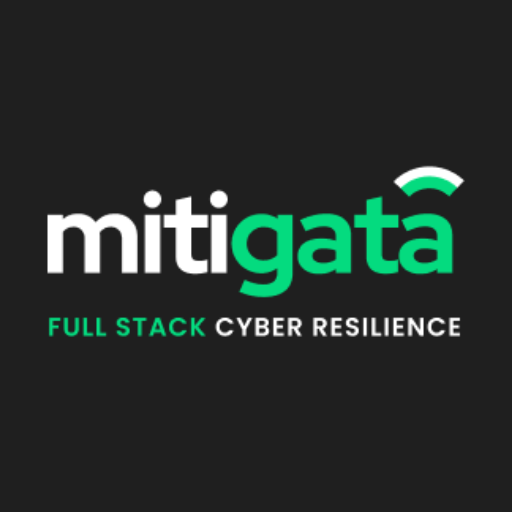Over 70% of small businesses in India were attacked by cybercriminals in 2025, and moreover, most lacked appropriate insurance.
A cybercriminal attack can cost a business an average of ₹35–50 lakhs per incident, including operational losses, regulatory fines, and reputational damage.
If you are looking for a reliable cyber insurance provider, then this blog will take you through a simple cyber insurance checklist for small business owners to help you qualify for cyber insurance quickly and easily.
Mitigata: Your Trusted Partner for Cyber Insurance
Choosing the right cyber insurance partner matters as much as the policy itself. Over 800 companies trust Mitigata, not just for coverage, but for proactive protection against cyber threats.
We’re proud of our 100% client retention rate, a rare achievement in an industry where trust and reliability are everything.
Why 800+ Companies Choose Mitigata?
We are the only cyber insurance provider in the market to offer exclusive access to our in-house security tool, Mitigate Console, for complete visibility into your organisation’s cyber risk. It helps you with:
- Identify vulnerabilities in systems and networks before attackers exploit them.
- Train employees with simulated phishing and credential theft attacks.
- Scan the dark web for compromised credentials or sensitive information.
- Monitor fake domains, phishing pages, and hidden threats in real-time.
What’s your real cyber risk score? Discover how top companies are quantifying it before breaches strike.
The Importance of Cyber Insurance for Small Businesses
Small businesses often believe they are too small to be affected. But in reality, the situation is very different. Ransomware attacks cost Small to Medium businesses an average of ₹20-40 lakh per incident.
Data breaches may result in fines under DPDP 2025 and other regulations.
If customer information is breached, trust may never be restored.
Cyber insurance can limit your financial losses while also demonstrating that you are proactively managing your risks to your clients, investors, and regulators.
Cyber Risk Insurance Policy Starting at Just ₹95,000/ Year*
With Mitigata, you get the best market pricing, fast claims and proactive defence through our free cyber risk console.

Key Cyber Insurance Requirements 2026
Here’s what small businesses need for cyber insurance
Carry Out a Business Risk Assessment:
- Identify essential assets, including customer data, financial records, and intellectual property.
- Document your existing IT infrastructure and its vulnerabilities.
- Evaluate exposure to threats, including phishing attempts, ransomware attacks, or insider breaches.
Implement Cybersecurity Controls Necessary for Insurance:
Insurance companies typically require evidence of security controls, including:
- Multi-factor authentication (MFA) on all accounts.
- Endpoint protection with updated firewalls.
- Regular vulnerability scans and patch management for software.
Employee Training & Awareness:
- Implement phishing simulations and regular anecdotes to educate employees on cybersecurity.
- Document all employee training sessions and all employee adherence to cyber policy.
- Keep records of applications for the insurance policy.
Want to know more?
Check out Mitigata’s step-by-step guide to applying for cyber insurance.
Create Data Backup & Recovery Plans:
- Schedule automation backups for all critical systems.
- Conduct annual tests of your disaster recovery plans as needed to restore business continuity.
- Have the ability to rapidly restore the data that has been breached.
Create a Response Plan for Cyber Incidents:
- Identify the roles and responsibilities for managing cyber incidents.
- Establish a process for communication among employees, clients, and insurers.
- Document the delivery of containment, investigation, and recovery process.
Keep a Regulatory Compliance Record:
- Maintain a record of compliance with DPDP 2025 and other applicable laws.
- Document consent management, data retention policies, or precautions/breach notification process.
- Your insurers may ask for proof of any of this to approve your coverage.
Handle Third-Party Vendor Risk:
- Review vendor contracts for security requirements.
- Audit vendors’ security on a periodic basis.
- Include a review of the risk assessments of the vendors in your cyber insurance documentation.
Insurance That Watches, Warns, and Works When You Need It.
Get the most value for every rupee – comprehensive protection, 24/7 support, and access to your personalised cyber risk dashboard.

Cyber Insurance Checklist for Small Business Owners
This is a hands-on checklist for small businesses to ensure you have the right level of cyber insurance in 2025. If you can respond yes to all of these items, you are more likely to be approved.
- Completed business risk assessment
- Multi-factor authentication is enabled for all systems
- Up-to-date firewalls and endpoint protection
- Employee cybersecurity training documented
- Automated backups and tested recovery plans
- Incident response plan documented
- Regulatory compliance proof ready
- Vendor risk assessment completed
Still confused about buying cyber insurance? Read this article and explore the top proven benefits of cyber insurance.
Choosing the Best Cyber Insurance for Small Businesses in India
Different policies have different coverage, exclusions, and costs. Here are the points that you should consider while selecting the cyber insurance:
Coverage Limits Aligned With Potential Losses
Evaluate the potential costs of cyber events, such as ransomware, data breaches, business interruption, and regulatory fines.
Select a coverage limit that encompasses realistic worst-case developments. Underinsuring can leave a business vulnerable; conversely, overinsuring can unnecessarily raise premiums.
Exclusions for Specific Risks
Examine exclusions for events such as phishing, cloud breaches, or social engineering.
Some policies will require certain cybersecurity measures to be in place before coverage is issued. In understanding these exclusions, you can reduce the claim surprises.
Transparency and Speed of Claim Process
A policy that provides overall clarity and a streamlined claims process is very important for reducing downtime following the cyber incident.
Seek out insurers with an existing process dedicated to the cyber claims process as well as a proven history of settlement time.
Discounts for Cybersecurity Measures and Compliance
A number of insurers will lower premiums or enhance coverage for a business that demonstrates documented cybersecurity controls have been implemented, either through employee training or compliance documentation
Demonstrating these controls or being compliant means the Insurance provider can be confident that your business is more proactive and aware of risk, which is advantageous to coverage or premiums.
Confused between so many insurance providers? Check out these top cyber insurance companies and their comparison in this guide.
Buying Cyber Insurance? Start with the Right Partner.
Save more with Mitigata and get exclusive tools to monitor your digital footprint proactively.

Conclusion
To stay ahead of the cyber threat economy, complying with the 2025 cyber insurance provisions is required. As a small business owner, you can reduce your exposure to financial risk, protect customer data, and improve your chances of approval by following this cyber incident insurance checklist.
Are you ready to get started? Contact us for a personalised quote today.

